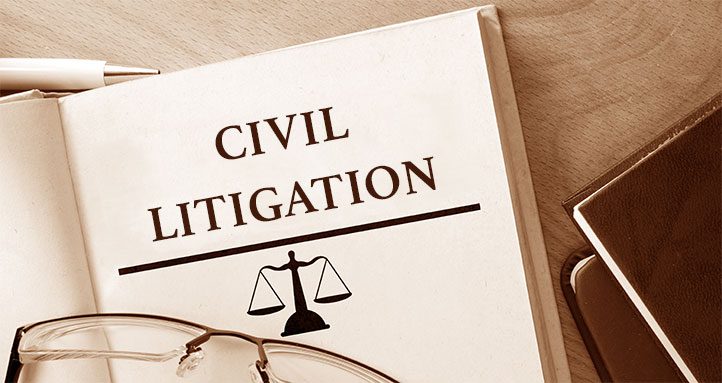Affordable Civil Litigation Options for Individuals and Small Businesses
Civil litigation can be a daunting prospect for both individuals and small businesses, often fraught with complexity and potential financial strain. However, securing legal representation does not have to be prohibitively expensive. There are affordable civil litigation options available that ensure every party involved has access to justice while being mindful of budget constraints. This article explores affordable civil litigation options, the types of civil lawsuits, how to find cost-effective legal assistance, and strategies to minimize expenses while pursuing a case.
Understanding Civil Litigation
Civil litigation encompasses legal disputes between individuals, organizations, or entities that typically resolve conflicts related to contracts, property, tort claims, and other civil matters. Unlike criminal cases, which involve the state prosecuting an individual for wrongdoing, civil litigation focuses on resolving private disputes and compensating victims for damages or losses incurred.
Common Types of Civil Cases
- Contract Disputes: These cases arise when parties involved in a contract disagree over obligations, terms, or performance. Examples include disputes between vendors, employees, or tenants and landlords.
- Personal Injury Claims: Individuals who suffer harm due to another party’s negligence (e.g., slip and fall accidents, medical malpractice) may seek compensation through civil litigation.
- Property Disputes: Disputes related to the ownership, use, or leasing of real estate can lead to civil litigation, often involving landlord-tenant conflicts or boundary disputes.
- Employment Disputes: Issues such as wrongful termination, discrimination, or wage disputes can arise between employers and employees, prompting legal action.
- Consumer Protection Cases: Individuals can file claims against companies that engage in unfair practices, defective products, or deceptive advertising.

Affordable Civil Litigation Options
1. Legal Aid Organizations
Legal aid organizations provide free or low-cost legal assistance to individuals who meet specific income criteria. These non-profit organizations aim to ensure that underserved populations have access to necessary legal services. Key points to consider:
- Eligibility: Most legal aid organizations assess financial need and may have additional requirements based on case type or geographic location.
- Services Provided: Legal aid may cover various civil litigation matters, including family law, housing disputes, and consumer protection cases.
2. Pro Bono Services
Many attorneys and law firms offer pro bono services, where they provide legal assistance free of charge to individuals or organizations in need. This is particularly common in certain legal fields, including family law and civil rights. Benefits include:
- Access to Expertise: Pro bono attorneys often come from reputable law firms and have significant experience managing specific types of cases.
- Wide Range of Services: Pro bono services may encompass various civil litigation matters, allowing clients to receive quality representation without legal fees.
3. Legal Clinics
Certain law schools and community organizations sponsor legal clinics staffed by law students under the supervision of licensed attorneys. These clinics offer free legal assistance and advice to individuals in various legal matters, including civil disputes. Advantages include:
- Hands-On Experience: Law students gain practical experience while providing valuable support to clients who may not otherwise afford legal help.
- Accessible Services: Clinics typically focus on specific areas of law or target marginalized communities, allowing individuals to access necessary support.

4. Limited-Scope Representation
Limited-scope representation, also known as unbundled legal services, allows individuals to hire attorneys for specific parts of their case rather than full representation. This option can significantly reduce costs. Examples include:
- Document Preparation: Hiring an attorney to draft legal documents or pleadings while the individual handles the case’s other aspects.
- Consultation Services: Obtaining legal advice or guidance during critical stages of the litigation process without ongoing representation.
This model allows individuals or small businesses to access legal expertise for specific needs while managing the overall process independently.
5. Contingency Fee Arrangements
Attorneys may agree to work on a contingency fee basis in specific cases, particularly in personal injury claims. This means the attorney’s fee is contingent on winning the case, typically taking a percentage of the awarded damages. This approach has the following benefits:
- No Upfront Costs: Clients do not pay legal fees unless they achieve a favorable outcome, making legal representation more accessible.
- Shared Risk: Attorneys are incentivized to work diligently on behalf of their clients, knowing their compensation depends on successfully winning the case.
Strategies for Minimizing Legal Expenses
- Be Prepared: Gather all relevant documents and evidence before meeting with an attorney. A well-organized case allows attorneys to provide more effective advice, reducing potential hours spent on preparation.
- Assess Your Case: Before pursuing litigation, evaluate the strengths and weaknesses of your case; this helps in making informed decisions about whether to proceed.
- Explore Alternatives to Litigation: Consider alternative dispute resolution methods like negotiation or mediation before opting for litigation. These methods can save time and costs while achieving desired outcomes.
- Communicate Clearly: Maintain open communication with your attorney regarding budgets and expectations. Establish clear fee arrangements and inquire about potential costs upfront.
- Limit Scope of Legal Services: If possible, handle parts of the litigation process independently while utilizing your attorney for guidance on complex matters.

Finding the Right Civil Litigation Attorney
When seeking legal representation, it is important to find an attorney who specializes in civil litigation and fits your budget. Follow these steps to find the right attorney:
- Research: Look for civil litigation lawyers in your area, paying attention to their experience, areas of expertise, and client reviews.
- Consultations: Many attorneys offer free initial consultations. Use this opportunity to discuss your case, evaluate the attorney’s style, and determine if they are a good fit.
- Ask About Fees: Inquire about the attorney’s fee structure during the consultation. Understanding costs upfront helps you make informed decisions.
- Evaluate Communication: Choose an attorney who values clear communication and is responsive to your questions and concerns throughout the litigation process.

Conclusion
Navigating civil litigation can be challenging and costly, but affordable options are available for individuals and small businesses seeking legal redress. By understanding the various resources available, such as legal aid organizations, pro bono services, legal clinics, and limited-scope representation, parties can access the legal assistance they need without incurring exorbitant costs. By adopting strategies to minimize legal expenses and finding the right civil litigation attorney, parties can effectively pursue their claims while protecting their interests. With careful planning and informed decision-making, individuals and small businesses can navigate the civil litigation landscape confidently and ensure that their rights are upheld.
